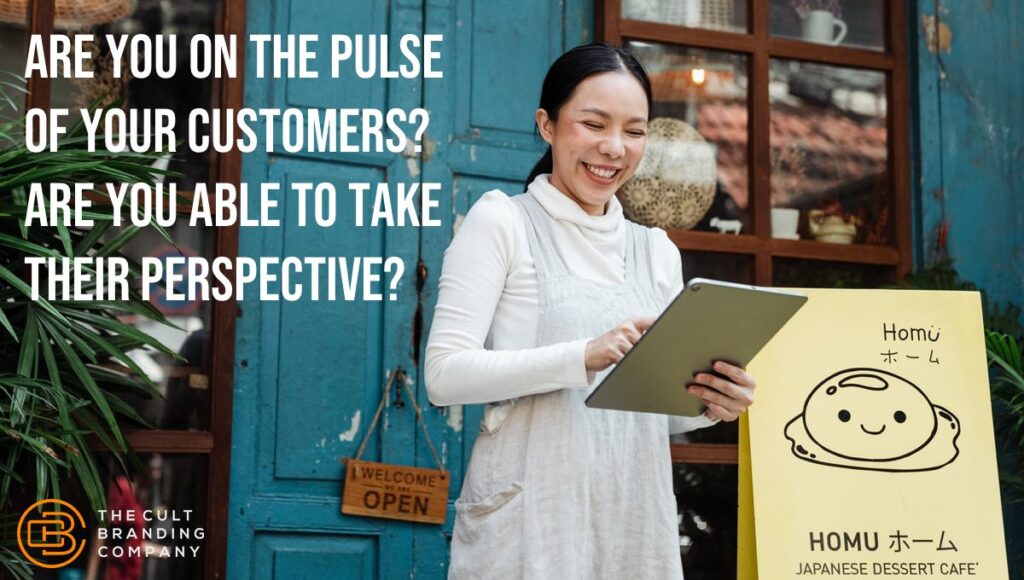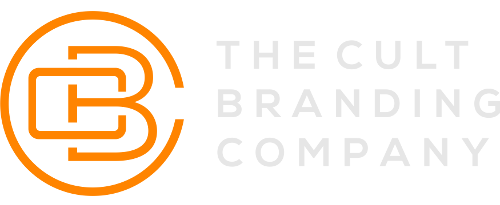22 Dec 7 Questions Leaders of Cult Brands Constantly Ask

The status of your business today is a direct consequence of the questions company leaders have been asking for the last several years.
Questions direct the future. Better quality questions produce better quality results.
Knowing what questions to ask, and when, is a skill. The more you practice this skill, the more proficient you become.
Leaders of Cult Brands ask different questions than most other business executives. These questions move their enterprise closer to their customers—toward trust, loyalty, differentiation, and the promise of a better tomorrow.
Here are seven questions customer-focused leaders regularly ask:
1) Why do our customers buy from us instead of our competitors?
Harley-Davidson couldn’t help notice that their customers enjoyed coming together to go for rides; this was the genesis of the Harley Owners Group. Lots of people love to ride motorcycles, but HOG members feel like they’re part of a special community (with over one million members). It’s what makes Harley different.
In an industry notorious for focusing on the less redeeming qualities in human nature, Oprah made her talk show a celebration of hope, empowerment, and self-improvement. It’s what made Oprah different.
It’s vital that you clearly understand how your brand differentiates itself from your competitors in a way that’s meaningful to your customers. Only then can you reinforce that differentiation in ways that better serve your customers.
2) How can we break the rules that run our category?
Who would want to buy eyeglass frames online when you need to try on many glasses to find one that fits? Warby Parker solved this problem by offering free shipping and allowing customers to order multiple frames before deciding which ones they want to keep without putting any money down.
Dollar Shave Club took the stale razor-blade category and made it fun and quirky. Their monthly subscription model is convenient and cheaper for customers while building repeat business.
Every market category has rules—standards of how the business operates. List all the rules that run your category and continually look for ways to disrupt the status quo.
3) How can our business help fulfill our customers’ passions and dreams?
IKEA customers are passionate about their home space. IKEA’s affordable furniture and accessories help its customers create aesthetically appealing spaces on a tight budget.
MINI customers are passionate about their vehicles. They want their cars to be an expression of their individuality. MINI helps them do that with their You-ification option that offers unlimited customization to the car’s design.
To answer this question, you first need to uncover the passions and dreams of your customers. What drives them? What tensions are they seeking to resolve? Who do they aspire to become? Then, determine how your business can best help them find fulfillment.
4) What are our customers telling us?
Who wants to pay an additional fee for checking in luggage for a flight you’ve already paid for? Southwest Airlines knew their customers expect more from them. While other airlines are charging up to $120 for passenger luggage, Southwest established their Bags Fly Free policy.
Amazon.com’s customers told them they didn’t want to wait to receive their packages or pay for shipping every time they ordered something. Amazon created their Prime program that now has over 112 million members in the US who enjoy free two-day shipping, free movies, and other perks for a moderate annual fee.
Are you on the pulse of your customers? Are you able to take their perspective? Do you know their tensions and what they want? Do you know where you’re excelling and falling short?
5) What else can we do to build a sense of community around our brand?
Hundreds of IKEA customers make family road trips and spend the weekend camping out in front of a new IKEA store. IKEA uses their grand openings to build a community for their customers with music, street performers, and BBQs.
Jimmy Buffet actively supports Parrothead clubs that champion his island-vibes and carefree living message.
What opportunities are you providing for your customers to connect with each other? Milestone events, such as store openings, the launch of a new product line, or holidays can serve as the focus for community building.
6) Who is our business especially for?
The Ritz-Carlton is a hotel chain for ladies and gentlemen served by ladies and gentlemen.
Vans shoes are especially for the skateboarding and snowboarding community.
Your business will attract many types of customers, but only a minority are tailored made for who you are and what you do. We call these special few Brand Lovers. If you know who they are and what drives them, you can create evangelists that will help you grow your business.
7) How is our business helping our customers experience freedom?
Linux, Vans, Google, Amazon.com, IKEA, Star Trek, Harley-Davidson, Apple, Oprah, and MINI all help their customers feel freer. It is one of the defining characteristics of Cult Brands.
Freedom is a powerful human need. As free as your customers may be, there are areas where they feel repressed. Who would they be if they were free to be their best selves? How can you help your customers move past the shackles and constraints placed on them by society and tradition?
The Seven Rules of Cult Brands
These seven questions mirror the Seven Golden Rules of Cult Brands. Asking these questions often and committing to finding better quality answers will put you on the fast track to fostering undying customer loyalty.

